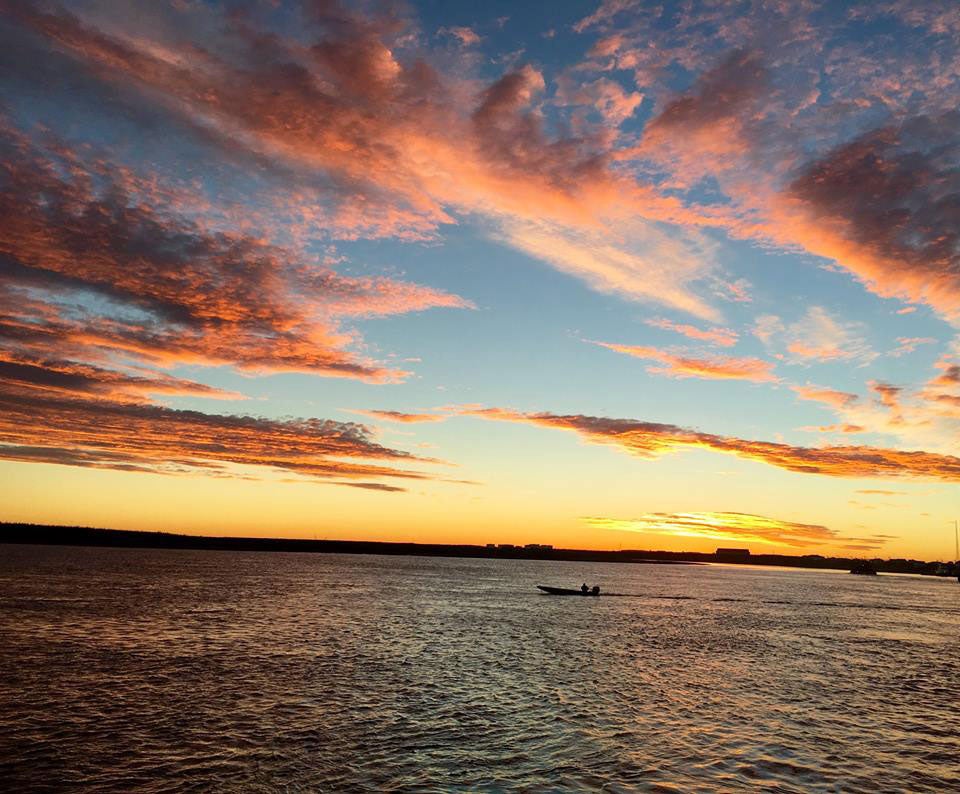Southwest Alaska Tribes File Two Separate State Appeals Challenging the Donlin Gold Mine
State of Alaska agencies failed to fully consider harmful impacts of the massive gold mine when issuing water permits and a water quality certificate
Contact
Orutsararmiut Native Council (ONC) and the Native Village of Eek today filed an appeal in the Alaska Supreme Court to review a lower court decision upholding 12 state water rights permits for the Donlin Gold Mine project.
Another appeal, filed earlier in September, asks the State Superior Court to reverse an Alaska Department of Environmental Conservation (DEC) ruling upholding a state water quality permit.
The Donlin Gold Mine, proposed along a tributary of the Kuskokwim River 10 miles north of the village of Crooked Creek, would dramatically change the Yukon-Kuskokwim region, posing environmental risks that would threaten people and communities who have lived in the region for millennia.
The permits at issue in the appeal filed today would allow Donlin to use millions of gallons of water for building and operating the mine project, which would involve dewatering fish habitat and potentially contaminating waters surrounding the project, threatening human health and aquatic life.
Two Southwest Alaska Tribes, represented by Earthjustice, are arguing that the Alaska Department of Natural Resources (DNR) should have considered the cumulative impacts of the water rights permits in context of the larger mine project, not just as isolated water permits, when issuing those permits two years ago.
A lower court earlier this year sided with DNR in ruling that a comprehensive look at the broader environmental impacts, required under Article VIII of the Alaska Constitution, only applies to projects built in phases. The appellants disagree with that interpretation of the constitution. The lower court ruling also sided with DNR in saying the Water Use Act did not require DNR to consider the creation of a pit lake which will fill with toxic water when the mine closes and will have to be treated in perpetuity to prevent contaminated water from spilling into surrounding salmon streams.
“The impacts from this proposed open pit mine, which would be the largest pure gold mine in the world, must be taken seriously and considered comprehensively,” said Orutsararmiut Native Council Executive Director Brian Henry. “The State has an obligation to protect the Kuskokwim River and its tributaries from possible environmental damage caused by the Donlin Gold Mine. Our very existence and ways of life depend on it.”
“Too much is at stake for these permits to be issued without more thorough consideration of the impacts, which is why we are appealing to the State Supreme Court,” said Native Village of Eek President Annie Pete. “Issuing these state water permits will also inevitably lead to the creation of a toxic pit lake when the mine is closed, so it makes sense that should be looked at now, not after these permits are issued and it’s too late. DNR must take a harder look at the numerous harms to the Kuskokwim region that would be caused by the Donlin mine.”
In the other appeal filed earlier in September in State Superior Court, ONC is asking the court to vacate a decision by DEC Commissioner Jason Brune on his last day in office to uphold a state water quality certificate called a Section 401 Certificate.
Brune’s decision to issue the certificate authorizes significant harm to salmon habitat in an 11-mile segment of Crooked Creek, a tributary of the Kuskokwim River adjacent to the proposed mine. The harm would be caused by reducing the water flow in the stream, which would expose salmon spawning beds and reduce salmon survival. The reduced flow would also raise stream temperatures that would also harm salmon. Donlin’s own studies showed that — if climate change is ignored — stream temperatures would rise to within ½ of a degree Fahrenheit of the standard needed for salmon to thrive. Considering increased stream temperatures expected due to climate change, violations of the temperature standard would almost certainly occur.
“The DEC Commissioner refused to take these concerns seriously and also continues to ignore warming to our rivers from climate change which we all know will happen,” said ONC Director Brian Henry “This decision knowingly sacrifices salmon, which our people depend on for their existence.”
In addition to these two state appeals, ONC, Native Village of Eek, Chevak Native Village, Native Village of Kwigillingok, and Cook Inletkeeper are challenging the Donlin Gold Mine through one other state challenge to a right-of-way lease for a pipeline that would power the mine. That appeal is also now before the Alaska Supreme Court.
The most recent case challenging the proposed Donlin Gold mine was filed in federal court by six Southwest Alaska Tribes — ONC, Tuluksak Native Community, the Organized Village of Kwethluk, the Native Village of Eek, Native Village of Kwigillingok and Chevak Native Village. The federal lawsuit targets flawed environmental and subsistence studies and authorizations for the mine.
For more information, please visit the Earthjustice case webpage, Challenging the Donlin Gold Mine.

Additional Resources
About Earthjustice
Earthjustice is the premier nonprofit environmental law organization. We wield the power of law and the strength of partnership to protect people's health, to preserve magnificent places and wildlife, to advance clean energy, and to combat climate change. We are here because the earth needs a good lawyer.